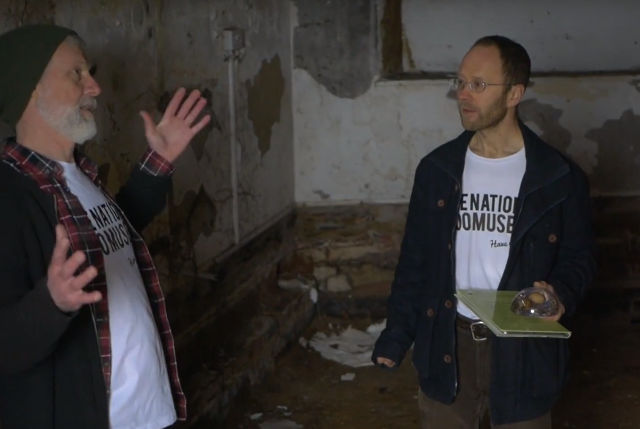A total of £100,000 has been awarded across two Isle of Wight projects, as part of Coastal Revival Funding which aims to restore coastal landmarks and bring economic growth to communities up and down the Great British Coast.
Now in its third year, the fund – which has provided £4.7m to support 117 projects in coastal areas since 2015 – provides grants to coastal heritage sites to fund repairs and restoration.
The two projects on the Island to be awarded £50,00 each are Northwood House and Sandown Barrack Battery (which houses the National Poo Museum).
The Battery Recharged
The capital funding boost of £50,000 for the new home for the National Poo Museum, Sandown Battery Barracks, will help bring back to life this formerly-abandoned seafront 19th Century Napoleonic Fort.
The project, titled The Battery Recharged, will see repairs of the Scheduled Ancient Monument, which is being converted into a tourism and education facility.
You can see Sandown Battery all lit up on Sunday 16th December, with the return of the Christmas Garden.
Rotunda Restoration
Whilst recently attending the Isle of Wight Literary Festival we were very impressed with the standard of restoration at Northwood House, the II* Listed ‘at risk’ building in Cowes.
So it’s great to hear that a captial boost of £50,000 will be going to help preserve the building for future generations and ensuring its continued safe use today.
The funds will be used to repair the roof of the main rotunda entrance, as well as restoring and renovating the interior of this unique part of the building.
Dining car no more
Capital funding was awarded for the restoration of a rail heritage building on Ryde Esplanade, but
Isle Access, who had applied for funding say they will no longer be undertaking the project.
OnTheWight has asked the Ministry of Housing, Communities and Local Government whether this means the next person on the short-list will receive the award instead
The Ministry of Housing, Communities and Local Government confirmed,
“The money was specifically allocated to the Dining Car restoration project in Ryde and there are no current plans to reallocate this to a different project at this stage.”
Historic England: “Restoring local gems can attract investment”
Deborah Lamb, Deputy Chief Executive of Historic England, said:
“We welcome news of funding to help save at-risk historic buildings and places in our seaside towns and villages, so that they can be brought back into use for the benefit of local communities.
“Restoring local gems can attract investment and help to tackle the deprivation that is a problem in a number of our coastal areas. There are great examples of restoration projects in our seaside towns, often bringing together the private, public, voluntary and social enterprise sectors. This funding will inspire more.”
Article edit
18.15 Confirmation from MHCLG added





